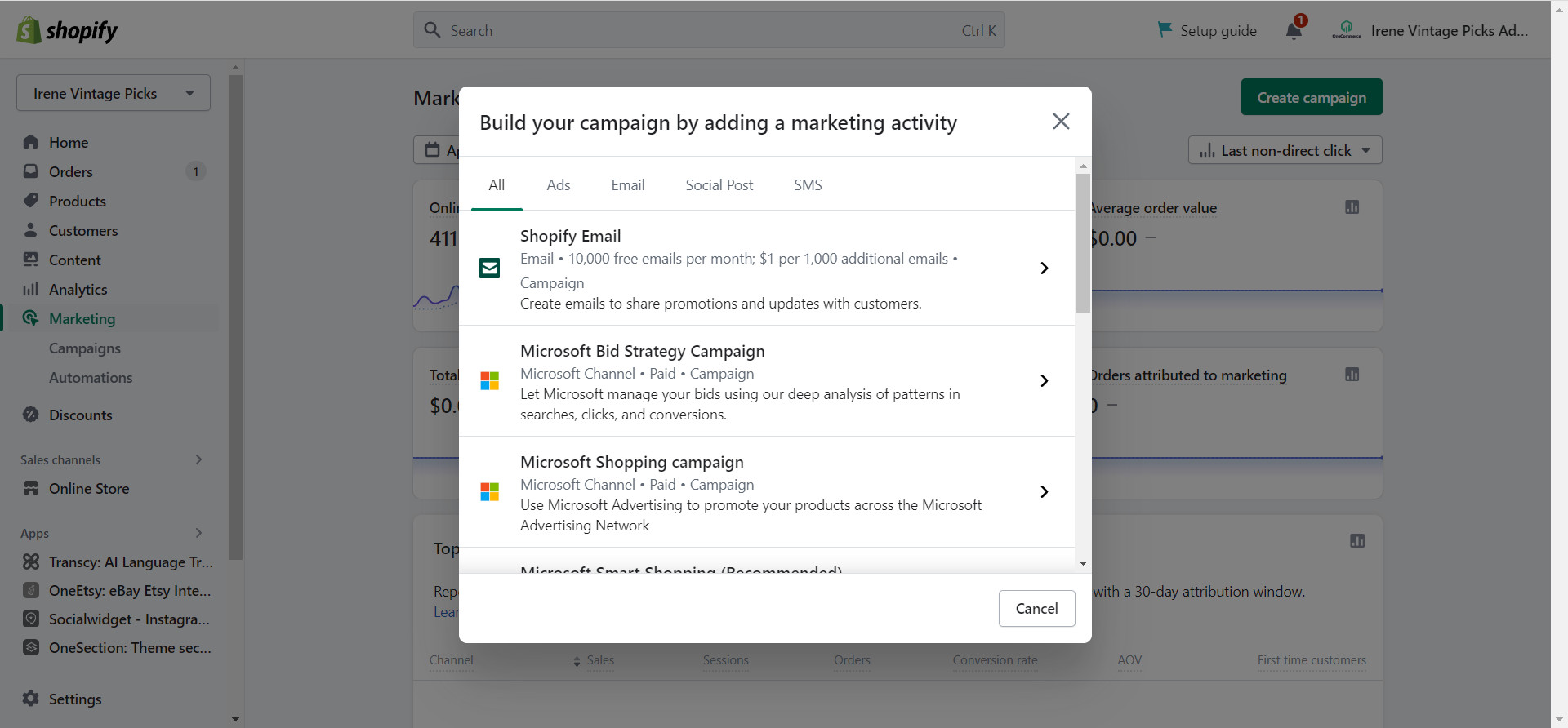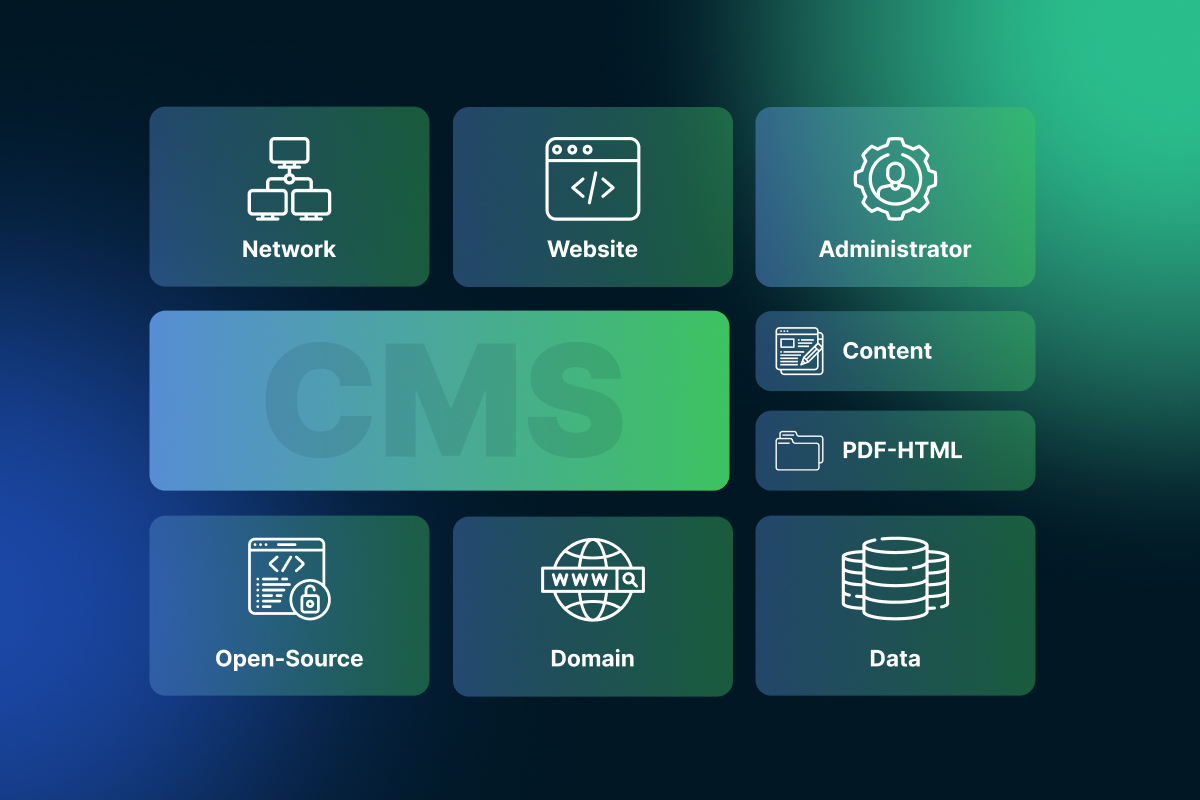Table of Contents
Are you considering Shopify CMS for your online store? Understanding the ins and outs of this popular content management system can help you make an informed decision.
In this blog post, we’ll explore what exactly a Content Management System (CMS) is, then delve into all the Pros & Cons of Shopify CMS.
Without further ado, let’s dive right in!
What is Content Management System (CMS)?
A content management system (CMS) is a software application that helps streamline the management and organization of website content. Particularly, it simplifies creating, editing, and publishing content, making it accessible and user-friendly for individuals without extensive technical expertise.
When you’re on the hunt for a CMS, these are a few key features you should keep an eye out for:
- Intuitive User Interface: A well-designed CMS offers an intuitive interface, allowing you to seamlessly navigate various sections and functionalities.
- Content Creation and Editing: Look for a CMS that provides robust content creation and editing capabilities, such as visual or WYSIWYG editors, ensuring a user-friendly experience.
- Media Management: Effective media management is paramount. A reliable CMS enables effortless uploading, organization, and management of images, videos, and other media files.
- Publishing and Scheduling: Choose a CMS that facilitates both instant publishing and scheduled release, enabling you to control the timing of your content.
- SEO Optimization: A competent CMS incorporates features to optimize your content for search engines, such as customizable URLs, meta tags, and XML sitemaps, ensuring enhanced visibility.
- User Management: For those collaborating with a team or managing multiple contributors, a CMS offers comprehensive user management features, including roles and permissions, which are indispensable.
What is Shopify CMS?
So, is Shopify a CMS?
Yes, Shopify is a CMS that allows you to manage your content across pages, including the homepage, product pages, collection pages, about us pages, blog pages, etc.
This makes Shopify a CMS with robust eCommerce features.
The beauty of Shopify CMS lies in its Software as a Service (SaaS) nature, where all your data and software are securely hosted in the cloud, eliminating the hassle of software installations on your computer.
One of the most notable pros of choosing Shopify CMS is its ability to handle all the technical aspects of running an online web store. From managing servers and payment gateways to providing regular updates and robust security measures, Shopify CMS takes care of the intricate technicalities, enabling you to focus on your business.
However, it’s noteworthy that Shopify is more well-known for its powerful built-in eCommerce features like inventory management, order fulfillment, shipping, etc. rather than a purposely-built CMS (we’ll discuss this right below).

Shopify is a robust eCommerce platform with great CMS capabilities
Now that we better understand what Shopify CMS is, let’s dive into all its pros and cons!
| 💡 Learn more: |
Advantages of Shopify CMS
1. Ease of Use
When it comes to ease of use, Shopify CMS takes the cake. It’s designed with simplicity in mind, making navigating and managing your eCommerce website a breeze.
With its intuitive interface, you’ll feel right at home as you effortlessly set up your store, add products, customize themes, and manage orders. Shopify CMS empowers you to focus on growing your business rather than getting lost in the intricacies of website management.

Shopify CMS’s drag-and-drop editor lets you easily customize your visual storefront
2. Beautiful and responsive themes
When you’re running an online store, first impressions matter, and having an appealing design is crucial. So, another standout advantage of Shopify CMS is the availability of stunning and responsive themes in the Shopify Theme Store.
With Shopify Theme Store, you gain access to a vast collection of professionally designed themes (both free and paid) that are not only appealing but also responsive for different devices. Whether your customers browse your store on a desktop, tablet, or smartphone, these themes ensure a seamless and engaging user experience.
Plus, Shopify themes are highly customizable, allowing you to tailor them to match your brand’s identity and create a unique online presence.

The Shopify Theme Store offers various options to suit your business needs
3. Secure hosting and unlimited bandwidth
With Shopify CMS, you can enjoy the benefits of secure hosting and unlimited bandwidth, taking the burden of technical complexities off your shoulders.
Simply put, when you pay a monthly subscription fee to use Shopify, Shopify will host your website securely on their server. Hence, you don’t have to search for a trustworthy hosting provider or deal with intricate server configurations.
Moreover, with unlimited bandwidth, your online store can handle any traffic without restrictions or additional charges. Whether you experience a sudden surge in visitors or steady growth over time, your website will continue to deliver a seamless shopping experience.
4. Great built-in sales and marketing features
One of the standout advantages of Shopify CMS is its impressive lineup of built-in sales and marketing features that will elevate your online business.
With Shopify CMS, you can access a comprehensive suite of tools to streamline your sales and marketing efforts. From customizable discounts and promotions to powerful abandoned cart recovery, Shopify CMS equips you with the means to attract and retain customers effectively.

You can run email, ad campaigns and more with Shopify CMS
Additionally, the platform offers robust SEO optimization features, enabling you to enhance your store’s visibility in search engine rankings. Shopify CMS seamlessly integrates with popular social media platforms, allowing you to tap into their vast reach for marketing your products.
Moreover, you can run targeted email campaigns, generate authentic product reviews, and effortlessly integrate with various advertising channels. These powerful sales and marketing features give you a competitive edge in the e-commerce landscape, empowering you to achieve your business goals confidently and successfully.
5. Extensive App Store
With over 8,000 apps, the Shopify App Store is undoubtedly a highlight feature that sets Shopify CMS apart from other content management systems.
With an extensive array of apps and integrations, the Shopify App Store opens up a world of possibilities for enhancing and customizing your online store. Whether it’s boosting your marketing efforts, managing inventory more efficiently, or optimizing customer support, the Shopify App Store has you covered.
From powerful analytics and reporting tools to social media integrations and email marketing solutions, you’ll find many options to elevate your online business. With the Shopify App Store, you can tailor your store’s features and capabilities to align perfectly with your vision.
Check out some
| 💡 Check out some outstanding applications from Shopify app store: |
6. Excellent Customer Support
Though Shopify CMS is easy to use, you’ll inevitably encounter lots of technical issues and hassles. Fortunately, you’ll experience the exceptional customer support you deserve with Shopify CMS. Whenever you encounter a question or concern or need assistance, Shopify’s dedicated support team is there to help you.
Their knowledgeable and friendly experts are available 24/7, ensuring you never feel alone in your e-commerce journey. Whether you’re a beginner navigating the platform or an experienced user seeking advanced guidance, the Shopify support team will provide prompt and reliable solutions tailored to your needs.
You can contact them via live chat, email, or phone, knowing you’ll receive personalized and expert assistance. With Shopify CMS, you’ll know that a team of professionals is just a click or call away, ready to support you every step.
Disadvantages of Shopify CMS
1. Not built for content purposes
Shopify CMS is easy to use and well-packed with many built-in sales features. However, at the end of the day, it is more like an eCommerce platform than a purposely-built platform for content demands.
So if you strongly emphasize blogging and content marketing, Shopify might not be your go-to choice. Though Shopify has built-in blogging features, they only give you basic customization and little control over your blog posts’ content and design elements.
What we’re trying to say is that if you want a platform developed solely for content purposes, other CMS like WordPress and Magento would better suit you.
For more information, check out our head-to-head comparison between Shopify vs WordPress for SEO.
2. Limited customization possibilities
Every coin has two faces. Shopify’s ease of use makes it a brilliant choice for beginners, but this may not give tech-savvy or expert-level users the full customization they want.
For instance, you cannot add out-of-the-box features to your Shopify theme. Instead, you’d have to rely heavily on the features and visual elements the theme developers provide.
Though you can tweak the theme code, it’s still limited in terms of what you can code. So, you’d have to rely on Shopify apps to have your desired features. This might add up to your expenses–the next thing we want to discuss.
3. Relatively high pricing
One of the biggest drawbacks of Shopify CMS is that its pricing might get a little bit pricey. You might argue that the Basic Shopify plan only costs you $39/month.
However, from our experience, you’d have to upgrade to higher-tier pricing plans if you want more advanced features and customizations. The highest can cost you $399/month.
Not to mention that Shopify charges you transaction fees for each sale you earn. The higher the pricing plan you are on, the lower this fee is.
And if you do not use Shopify Payments (a payment gateway developed by Shopify themselves), you’ll be charged extra third-party transaction fees.
Plus, as mentioned above, if you depend too much on Shopify apps, it can quickly add up to your limited budget and eat into your profit margin.
3. Not a headless CMS
When managing your content, there’s a new approach called a “headless CMS” that offers some impressive advantages. A headless CMS separates your content from how it’s presented, allowing you to distribute it across different platforms like websites, mobile apps, and voice assistants.
This flexibility is what makes it so appealing. However, Shopify CMS, while powerful for e-commerce, lacks the headless capability for all plans except Shopify Plus. It means you’re limited in customizing the presentation layer and can’t easily go beyond Shopify’s predefined storefront.
For instance, a headless CMS would be more suitable if you wanted to build a dynamic website with interactive content that goes beyond traditional e-commerce.
So, if you crave complete control over your website’s look and feel and want to deliver content across diverse channels, Shopify isn’t the right solution. Otherwise, you’d have to pay much from $5000 (the lowest Shopify Plus plan) for Shopify Plus.
Frequently Asked Questions
1. Does Shopify have a CMS?
Yes, Shopify has a built-in CMS (Content Management System) that allows users to manage their website content, products, and collections.
2. Does Shopify have a headless CMS?
No, Shopify does not have a headless CMS. It is primarily designed for e-commerce, and its content management capabilities are tightly integrated with its templated storefront.
3. How much is Shopify CMS?
The cost of Shopify CMS varies depending on the plan you choose. Shopify offers different pricing tiers starting from $39 per month for the Basic Shopify plan up to $399 per month for the Advanced Shopify plan.
Not to mention that you’d have to factor in countless other costs involved in running your Shopify eCommerce CMS, like custom domain, transaction fees, marketing costs, etc.
4. Is a CMS used for eCommerce?
It depends on what CMS you’re talking about because a CMS is a software application that allows you to manage and organize your website content. And website content here is broader than eCommerce. For instance, if you choose WordPress as your CMS, you’d have to install the WooCommerce plugin to use WordPress CMS for eCommerce purposes.
And suppose you’re looking for a powerful eCommerce platform with efficient CMS capabilities. In that case, Shopify CMS would be a wise choice. It caters explicitly to e-commerce needs by providing inventory management, payment gateways, and order-tracking features.
Final Words
In conclusion, Shopify CMS is a popular choice for e-commerce businesses due to its user-friendly interface, stunning themes, secure hosting, and robust sales and marketing features. However, it’s important to consider the drawbacks of Shopify CMS. As it is primarily designed for e-commerce, it may not meet all your content management needs.
Ultimately, whether Shopify CMS is the right fit for you depends on your specific requirements. Consider the advantages and disadvantages outlined here, and weigh them against your business needs and goals.



